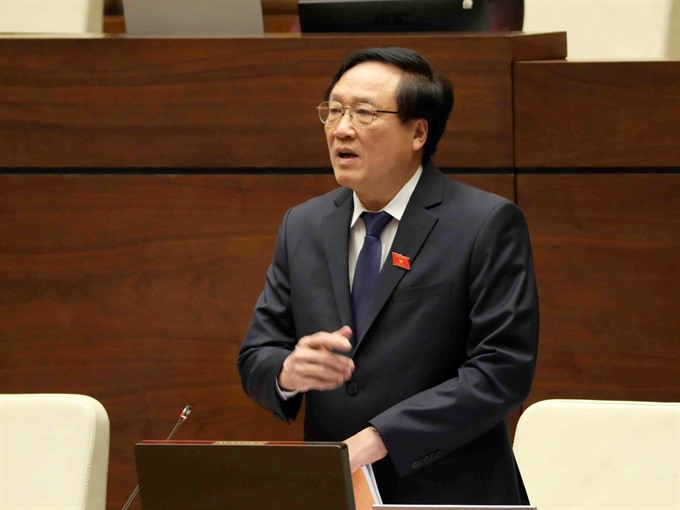 Politics & Law
Politics & Law

Deputies raised questions about measures to improve the quality of judicial work and the settlement of economic corruption cases at the Q&A session of the ongoing fourth sitting of the 14th National Assembly in Hà Nội on November 18.
 |
| Chief Justice of the Supreme People’s Court Nguyễn Hoà Bình responding to lawmakers’ queries at the National Assembly cabinet hearing on the morning of November 18. — VNA/VNS Photo Phương Hoa |
HÀ NỘI — Deputies raised questions about measures to improve the quality of judicial work and the settlement of economic corruption cases at the Q&A session of the ongoing fourth sitting of the 14th National Assembly in Hà Nội on Saturday.
Taking the floor to answer lawmakers’ queries, Chief Justice of the Supreme People’s Court Nguyễn Hoà Bình stressed the need to comply with regulations stipulated in the new criminal procedure code throughout the three stages of investigation, prosecution and issuing judgement.
The Supreme People’s Court has issued standard procedures for the establishing of precedents and planned to create a national legal precedent advisory council, he said. He added that in the future, this will help remove certain difficulties in the country’s court system.
“We will apply not only the legal precedents of Việt Nam but also those of the world,” he noted.
Since the beginning of this year, the court has publicised 32,318 verdicts, which received positive comments from the public as well as more critical opinions, Bình said, adding that the announcement of verdicts on the Internet is in line with the court’s principles of transparency. Verdicts relating to juveniles will not be publicised, however.
The court has decided to add one additional judge in each district, where each judge on average hears 12 cases a year. The move is also intended to encourage judges to increase responsibility and improve their professionalism and ethics.
Since 2016, the court sector has halted the hiring of judges. It is proposing that the NA Standing Committee increase the number of judges to 6,000 according to the needs of each locality, Bình said.
Fielding questions about major economic corruption cases in 2017, the Chief Justice was joined by Minister of Public Security Tô Lâm, who admitted that legal regulations create some restrictions in preventing and combating corruption.
The coordination between relevant agencies is still limited, he said. Therefore, the Ministry of Public Security will step up coordination with investigations, auditing, courts, and customs agencies in the future to speed up the investigation of corruption cases, he added. — VNS




